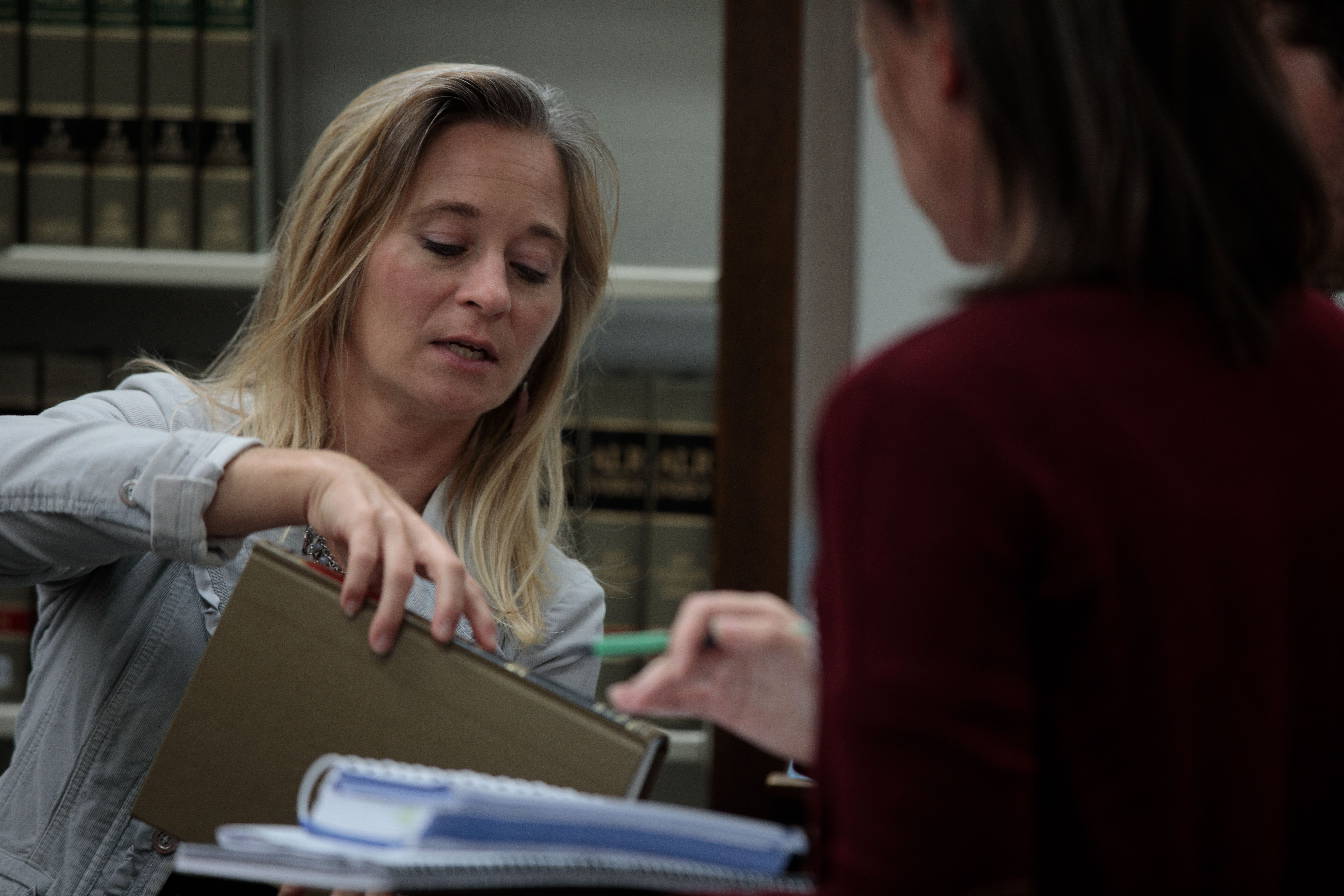
“Experiential Learning is worth all the hype,” says ONU Law Dean Charles H. Rose, III. “Learning by doing makes you a better lawyer. We see it here every day.”
While there are different types of learners, we know we retain the most information by engaging in practical, hands-on experience. It’s what our faculty does best from the first day our students walk into the classroom until the day they graduate, he says.
“For example, in our Legal Research and Writing course, we’re instructing students from day one on how to prepare practice-oriented documents. Then we show them. Then they get the chance to draft the document themselves so when they go into their first summer internship or associate position, they can actually compose substantive documents themselves,” says law professor Allison Mittendorf.
“In their second and third years, we go further, giving them opportunities to hone their skills by applying their legal knowledge and skills through simulations or real-world situations,” says law professor Melissa Kidder.
Students can choose to participate in externships or clinics, where they can get actual real-life experience. And when those real-life opportunities don’t exist, programs like Moot Court and Trial Team provide intensive real-life scenarios that serve as an adequate substitute, she explains.
“The more our students are able to learn and practice their skills in as realistic a setting as possible, the more self-confident and proficient they become,” says Mittendorf.
“We take practical learning seriously at ONU, so much so we require students to get more than the minimum number of experiential learning credits they would find at most law schools. We want students to put their knowledge and skills to practice by ‘doing’ the work - because even though they might not be perfect now, practicing their lawyering skills will make them a better lawyer,” says Kidder.
The benefits of choosing a small law school are far-reaching, explains Mittendorf. “Our class sizes are ideal. All feedback comes directly from the student’s professor, not a teaching assistant. And while the environment here is a little more work-intensive, our students get more practice and feedback on their assignments compared to a larger university. Ultimately, that means they will be better prepared when they enter the legal profession,” says Mittendorf.
Kidder explains that we also have 100% placement in our externships and clinics.
“That means students are guaranteed the chance to work in the legal field under the supervision of a lawyer or judge through one of our many externship placements or the chance to work in a law office setting through one of our clinics. They will meet with clients, go in front of the judge on cases, talk to opposing counsel, and draft more sophisticated legal documents,” she explains.
“The best part of doing a clinic or externship is that instead of us telling and showing them how to be a lawyer, they get to be a lawyer, and then we as faculty members collaborate and mentor them through the process while they are doing it.”